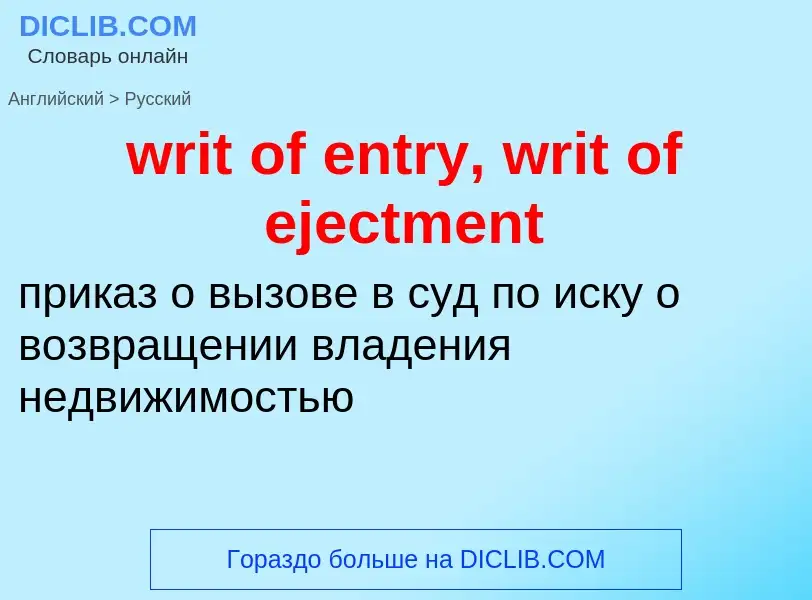Μετάφραση και ανάλυση λέξεων από την τεχνητή νοημοσύνη ChatGPT
Σε αυτήν τη σελίδα μπορείτε να λάβετε μια λεπτομερή ανάλυση μιας λέξης ή μιας φράσης, η οποία δημιουργήθηκε χρησιμοποιώντας το ChatGPT, την καλύτερη τεχνολογία τεχνητής νοημοσύνης μέχρι σήμερα:
- πώς χρησιμοποιείται η λέξη
- συχνότητα χρήσης
- χρησιμοποιείται πιο συχνά στον προφορικό ή γραπτό λόγο
- επιλογές μετάφρασης λέξεων
- παραδείγματα χρήσης (πολλές φράσεις με μετάφραση)
- ετυμολογία
writ of entry, writ of ejectment - translation to ρωσικά
Ορισμός
.
Βικιπαίδεια
In the history of the courts of England and Wales, the writ of quominus, or writ of quo minus, was a writ and legal fiction which allowed the Court of Exchequer to obtain a jurisdiction over cases normally brought in the Court of Common Pleas. The Exchequer was tasked with collecting the King's revenue, and the legal fiction worked by having the plaintiff in a debt case claim that he was a debtor to the king, and that the defendant's debt prevented him paying the King. As such, the defendant would be arrested, and the case heard by the Exchequer. The writ's predecessors were in use from at least 1230, and it was in common (albeit strict) use during the 16th century. The use continued into the 19th century, until all original writs were abolished in 1883.

